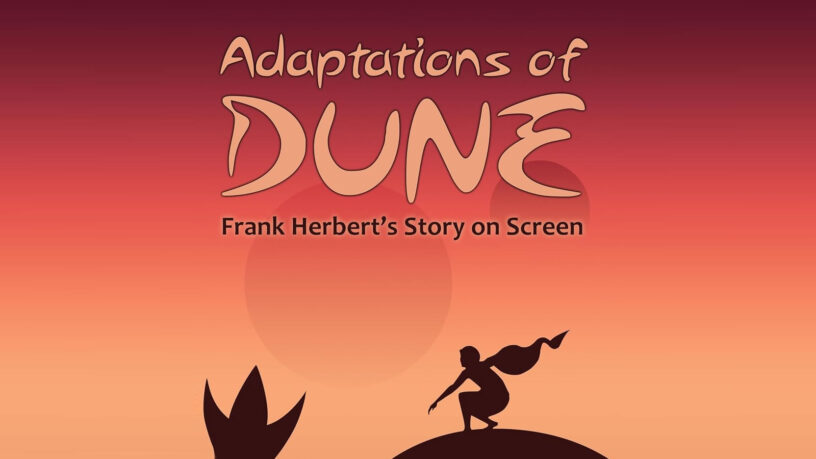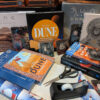Dr. Kara Kennedy is a familiar name in the Dune community, having authored two previous books on Frank Herbert’s Dune saga: Women’s Agency in the Dune Universe: Tracing Women’s Liberation through Science Fiction and Frank Herbert’s Dune: A Critical Companion, as well as numerous articles. Her new book branches out beyond literary analysis and into the realm of the moving image, be it film or television.
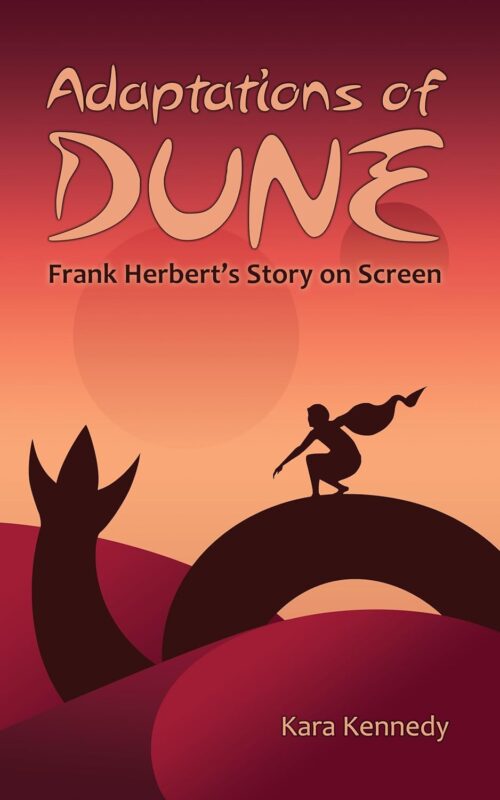
After a short summary of the novel’s plot, and a timeline of all screen adaptations—including failed projects of Arthur P. Jacobs, Alejandro Jodorowsky, Ridley Scott, and Peter Berg and Pierre Morel—the book devotes lengthy chapters to the successful productions of David Lynch (Dune – 1984), John Harrison (Frank Herbert’s Dune miniseries – 2000), and Denis Villeneuve (Dune: Part One – 2021). Each chapter is broken down into background, production, critical reception, and a comparison of every aspect—from characters to planets—with the novel’s description. The book uses a lens of “compression, correction, and updating” to frame these alterations.
Lynch’s Dune (1984)
With David Lynch’s Dune movie marketing itself as the next Star Wars, there was no shortage of publicity at the time. Ed Naha’s The Making of Dune book led the behind-the-scenes revelations, along with numerous articles in sci-fi magazines and interviews for national newspapers. In recent years several books have revisited this box-office bomb, not least of which is Max Evry’s A Masterpiece in Disarray: David Lynch’s Dune. An Oral History, which is the definitive exploration of Lynch’s first (and last) attempt at a Hollywood blockbuster.
Drawing on this wealth of research, Kennedy’s book does a thorough job of analyzing the movie on its own, as well as faithfulness of the film versus novel, covering every conceivable aspect: story, themes, scripts, actors, characters, sets and costumes, gestures, soundtrack, special effects, and more.
While it presents an accurate comparison, as an unashamed fan of Lynch’s Dune movie, I sometimes feel that such logical analysis of the film can never address the dreamlike poetic beauty this adaptation.
The struggles of following on the heels of the original Star Wars trilogy—with its own desert plant, mind-controlling voice, and evil Emperor—are reviewed. Also included is a section on additional footage found in deleted scenes and the TV extended edition, to further explore Lynch’s original vision.
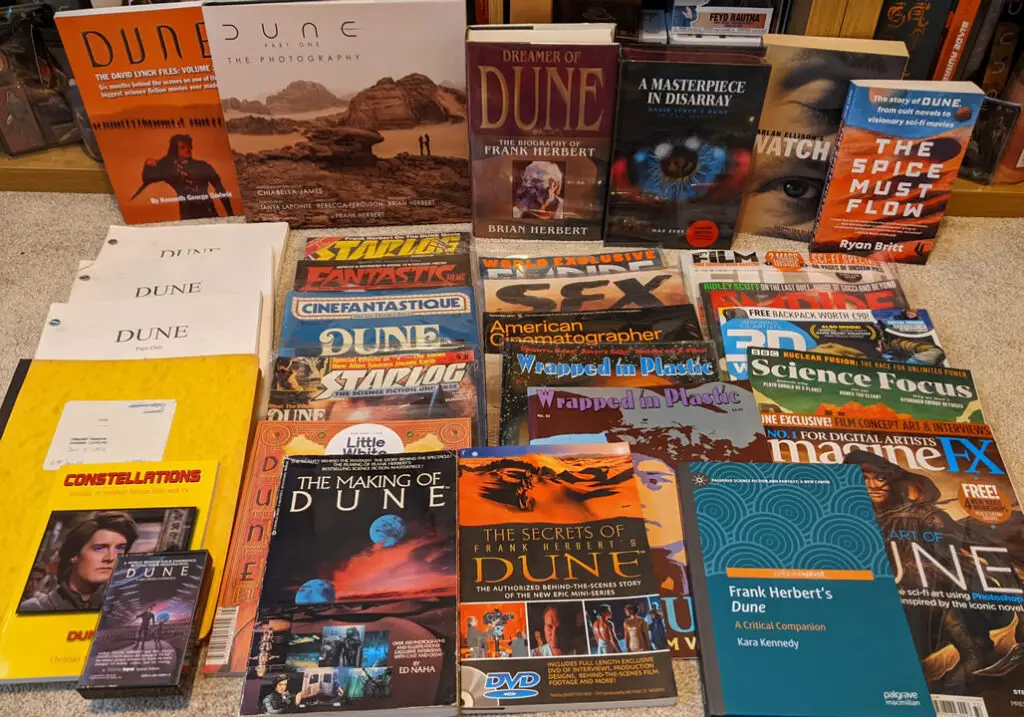
Frank Herbert’s Dune Miniseries (2000)
The miniseries is an often forgotten and overlooked adaptation, and I’m constantly surprised to see posts from people discovering this decades old TV series for the first time. Originally aired in three parts on the Sci-Fi Channel, this miniseries often tends to be skipped during discussions of prior versions of Dune on screen, perhaps due to being a TV adaptation rather than one designed for the big screen.
Compared to the two movie versions of Dune, the TV miniseries has relatively little existing analysis. Much of the information comes from The Secrets of Frank Herbert’s Dune by James Van Hise, a behind-the-scenes book that also came with a DVD full of interviews and featurettes, along with the extras and audio commentary available on that release. Ryan Britt’s recent book The Spice Must Flow also interviewed the director John Harrison about his work on the miniseries.
With the Lynch adaptation being at the end of a practically uninterrupted chain of failed attempts by several companies and directors, that resulting movie dampened any enthusiasm for tackling Dune again for many years. Kennedy’s book details the route taken to resurrect the property by producer Richard P. Rubinstein, who had adapted several of Stephen King’s novels for TV, and onboarding of John Harrison as both the writer and director.
Aspects of filming locations, cast, soundtrack, and special effects are detailed, as well as the critical reception of the show. While largely appreciated by fans of the novel, and sci-fi in general, the miniseries left several reviewers feeling cold.
As before, an in-depth comparison of the show versus the book follows. With the miniseries being twice the length of Lynch’s Dune it was able to more faithfully portray many scenes, such as the fan-favorite banquet sequence. It also expands roles of some characters such as Irulan, who has much more “screen” time than in the novel. Adaptations of Dune covers how the princess takes on some of the aspects of Lady Margot Fenring as part of this adaptation—a character who is missing even in the miniseries.
Dune: Part One (2021)
Out of the three adaptations, Denis Villeneuve’s Dune: Part One has, by far, the most written coverage. There’s a seemingly endless array of podcasts, videos, interviews, and articles devoted to the movie, not least of which was due to Warner Bros.’ Oscar Awards campaign. The director and many of the crew discussed their work, at great length, with members of the Academy during film awards voting season.
Following the Children of Dune miniseries in 2003 and a failed Paramount Dune movie project, it isn’t until 2016 that Dune reawakens. The rights landed at Legendary and seemingly, quickly and easily, Denis Villeneuve is brought on as director. The movie’s script is developed by Villeneuve together with Eric Roth, and later Jon Spaihts.
As this film only covers around two-thirds of the novel—the rest of the story will be told in Dune: Part Two—certain aspects for comparison remain unavailable, but there is still plenty for Kennedy’s book to explore, and it is broken down into similar sections as the previous two adaptations.
The book also delves into criticisms and controversies of the movie; including a lack of representation of Middle East and North Africa (MENA) actors, missing Arabic influences and themes from the book, and the gender-swap of the character of Liet-Kynes.
Reaction
Kennedy has done a wonderful job of pulling together information from a wide range of sources, from printed material to online articles, from podcasts to YouTube videos, and all are thoroughly detailed in the 20 pages of references. This makes the book a one-stop-shop for learning about Dune onscreen, although it is drawn from existing information and doesn’t present any new interviews unlike other recent Dune books by Max Evry and Ryan Britt.
With around 200 articles, books, interviews, websites, and videos referenced however, there is bound to be something new for everyone. Adaptations of Dune will certainly be an invaluable resource for all future research and examinations of Dune on screen.
While the book highlights and analyzes ways in which each adaptation deviates from the novel, I would have also liked to have seen some discussion on the cinematic reasons why such changes may have been made and reviews of earlier script drafts, to provide further insight into the process of compression, correction, and updating.
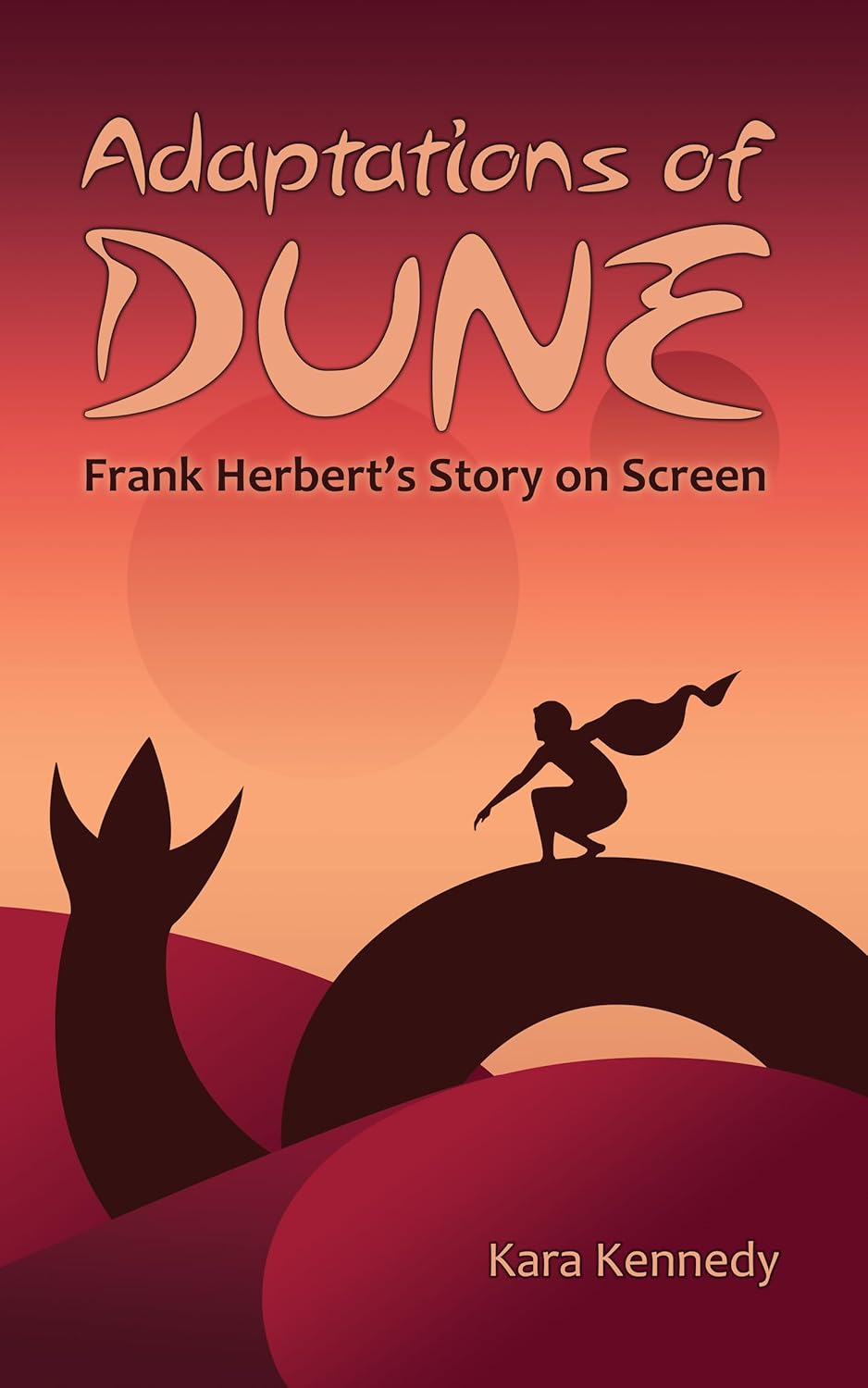
Note: This review was based on an advanced copy and the final book may have slight differences. Many thanks to Dr. Kara Kennedy for providing the Dune News Net team with copies for this book review.
Copies of various scripts for David Lynch’s Dune, the Frank Herbert’s Dune Miniseries, and Denis Villeneuve’s Dune: Part One are available at the DuneInfo Script Archive.


